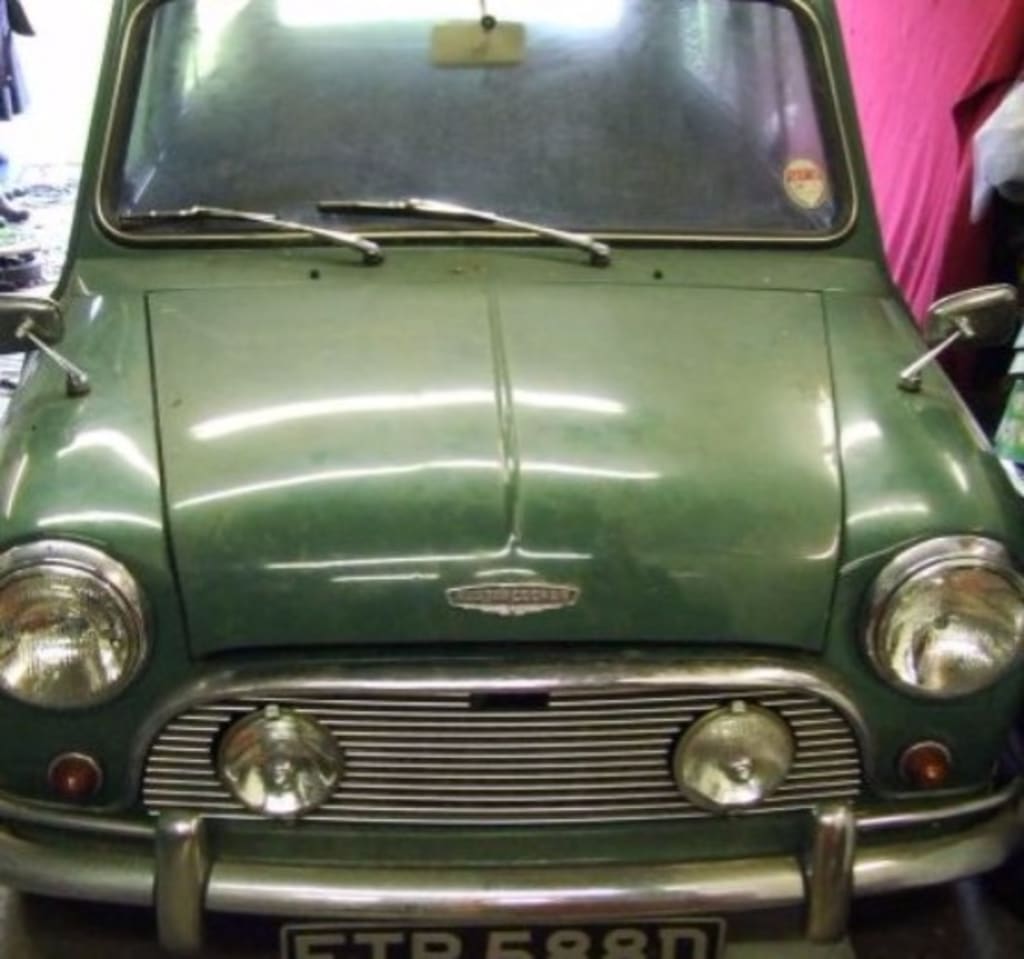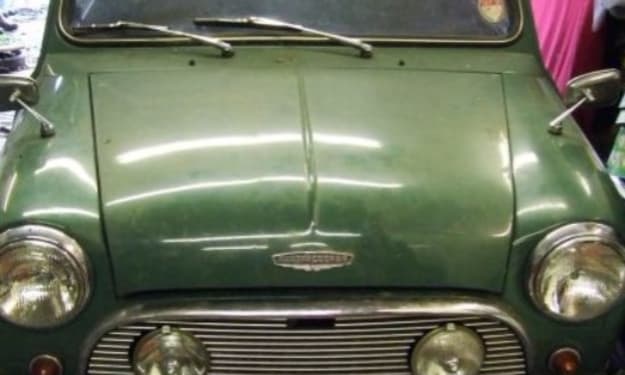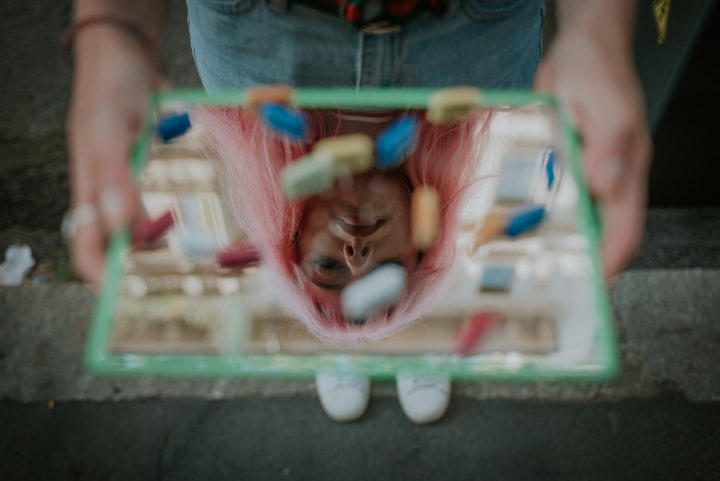
Automaton
I have known the despair of living by rote; I have understood what it is to have no hope. Hope lies in the future, in the ability to envision a future fearlessly and freely.
It is easy to slip from autonomy to automation. From possibility to posturing. From self-knowledge to self-destruction. The world demands it. The world insists. It takes courage and determination to resist. As Balzac said, “All happiness depends on courage and work”—an insight that goes much deeper than its simplicity would promise.
Without courage, we will be discouraged. Without work we will be worked upon.
It has taken me a long time to understand the profound profound effect that environment has on the individual, the impact that my environment has had on me. The way we are brought up, the resources we come into contact with, the possibilities opened (or closed) to us, are huge and sometimes insuperable barriers. The ways we can think, understand, and look at the world are largely predetermined, and it takes considerable effort and curiosity to achieve any true independence in this field.
For me, reading is/was/will be the gateway. To read is to be completely open to the words and ideas of another, to be abandoned to the unfamiliar, to be pulled somewhat from the vortex of our own swirling minds into a spacious tangential plane. And, of course, it is also highly personal, involving the self, the auto, in tangible, fungible ways. The self will assent, interject, grow angry or threatened as we read.
To read is to initiate dialogue, is to be open to surprising, nerve-wracking, thrilling exchange. To read is to kiss with the mind, to touch with the intellect, to be conjoined and separate in ways as arcane as sexual intercourse. A large claim? Not to me. This is a proportionate valuation of reading.
I remember the discovery that I could read silently in my own head, and did not have to speak the words out loud. This was a watershed event for me, and I am profoundly grateful to a family friend for explaining this to me and helping me to make this step.
It opened up a dizzying vista. It enabled privacy, it enabled interiority, it enabled individuation. It gave me a resource that as a young child I felt a desperate need for; it assuaged and sharpened a hunger in me that promises to be lifelong. Reading can be an escape, from current circumstance and mood, a means of pretence. But it can also be the opposite—a means of shedding pretence and seeking discomfort, uncertainty, and challenge.
Reading—contrary to popular belief—is not for the faint of heart. Reading —when done with the right motivation—is adventurous and exploratory, potentially revelatory. Reading can be life-changing.
Reading places me in direct friction with something that is not me, and allows me to shape and define my sense of self against another texture. It hones me, it buffs me, it scrapes me as with sandpaper and polishes me.
We become jagged and unapproachable in our self-obsession. If we cannot venture from our hedgehog headspace, our porcupine personality, we will remain alone, resentful, curled into a ball. To read is to invite malleability, to embrace experience, to widen—well, everything.
I read as a child to escape my loneliness and fear. I learned that this world is not my home—that my home could be found in a variety of places, in a variety of voices, at a variety of times and locations. I found rest in reading (which, is, not coincidentally, the single most relaxing conscious pastime in biological terms that is open to humankind). I read as a teenager to explore, to rebel, to attempt, to define. I read now, as an adult, to keep me humble, to keep me learning, to keep me mutating and changing.
I live by what I read: I can recall time periods/events based on what I was reading at the time. Relationships are defined in my memory by shared reads, by discussions of mutual interests in books. Books have literally shaped my life countless times: they have changed my mind, they have made up my mind, they have shattered my mind. This continual breaking, reshaping and renewal is one of the most stimulating aspects to my life, and one I cannot imagine living without.
To read is escape the lure of the automaton. It is to filter, decide and sort information in an individual and highly idiosyncratic way that no computer or robot can achieve. It is to assert the youness of you, and to let that youness take on new forms. It is a form of defiance, and a form of defence. It is to embrace form, as a site for meaning, as a starting point, as an opening. It is an opportunistic activity. It is one that will get you far.
Automobiles
Something else that can get you far: a car. Automobiles have loomed large in my recent psyche, and in no good way. They feel destructive, ubiquitous —like the car in The Great Gatsby that rips Myrtle’s breast and flattens the life from her. They have their own life, their own will—like a sinister version of Brum or Chitty Chitty Bang Bang (both childhood favourites).
I have always been suspicious of cars, and feel frequently feel that urge to turn the wheel and barrel into smithereens that drivers sometimes get. That destructive impulse. Cars are thanatos, in my imagination.
And yet they are oddly comforting. Mixed with the fear, or sometimes replacing it, is a womb-warmth, linked to the background thrum of the engine, and the beautiful centrifugal swish of the vehicle as it sweeps around a long corner. It is extraordinarily soothing. On occasion, I have had really good quality sleep while being driven.
I love to be driven. Whether that means the very hands-on independent forging of a path that brings me to life, or whether it is that passive, seatbelted surrender to another’s hand-eye co-ordination and sufficiently stable relationship to me to be my trusted temporary chauffeur, I find being driven to be a generous gift.
I am only settling into driving myself now (I will not force the heavy-handed metaphor; it is not quite accurate), after passing my test 6 years ago, and driving regularly for the last 9 months. Like it has taken me this much time to gestate automotive confidence.
I know where my reticence/distrust come from. And I skirt the issue, for fear of penetrating it. One source is my father, an erstwhile mechanic, as at home in the engine of a car as in his own regularly-ordered mind. It is a closed and predictable system like the ones I shy away from, and also one completely closed to me from lack of interest or the desire to attempt understanding. I do not possess a technical mind, and it bores me.
But anyway, here’s a memory. I was young, maybe 7?, and my dad took me to try out mini motos. I did not want to. He pressed me, insisting I’d love it. (What is it about people that don’t know how to give gifts, that only know how to give things they themselves would want?) Nervous, but, I suppose, wanting to please him, I agreed to get on, and he paid whatever inflated sum the bored-looking attendant demanded in order to let tiny children drive a tiny motorbike.
I had no clue what I was doing: this pulsing frightening thing between my legs was not something I knew how to control or enjoy (I will force this metaphor: the other thing this could be referring to is, by contrast, one I’ve always felt very comfortable with, at home with). I revved it up and flew off at a startling pace, straight into the barrier. Laughs: loud, slow-motion laughs from those nearby.
“Try again; just don’t turn the handle so hard”—between laughs—“you’ll get the hang of it, no problem.” Needless to say, I did not, and after the second attempt I gave up (doubtless in tears). I was a source of great amusement. That such a simple straightforward thing could be beyond me! Sometimes I think my parents only used me in order to make themselves feel better: but surely this is too cynical and self-pitying a stance to seriously adopt.
Other, more vague memories—of being a terrified clinging passenger on the back of a motorbike, of getting my leg caught in the spokes of a bicycle by my father who insisted I was safe, of being in the car when either parent has nearly crashed (and it doesn’t phase them in the slightest? Whereas I am petrified and shaken by such encounters). Do people not understand how dangerous driving is? How can everybody undertake it so nonchalantly, so coolly? Killing someone on the road would be something I cannot imagine recovering from. And it is a possibility.
A very real possibility, it feels, for someone as uncomfortable behind the wheel as me. But fear cannot be allowed to rule, to necessitate. Fear is irrational. Why do I let fear dominate in this arena? What is it about cars that makes me so uneasy? Specifically about driving—or the driver’s seat?
Ah, we must go deeper. Follow me into the labyrinth. I’m in here somewhere, though I am not hopeful of finding the exit or solving the riddle. It’s hidden in here, but in distorted, disjointed form. It is trauma.
I have had a flashback, twice. Or a memory. An impression. I do not quite know how to classify it. It is not something linked to concrete physical sensations, but rather overwhelming emotional state. Though the location is clear.
I wandered, in my head, through my grandparents’ farm. My father’s parents, the ones we didn’t see much, the ones we children dreaded visiting. I allowed myself to stray through each room of the house. The cramped, caravanish clutter of it, the closeness of the small walls and tiny doorways, the lack of space to breathe. Inhaling the thick smell: of sweat, of age, of deprivation, of old tea and ancient fabrics. It is a smell I can always call to mind. It is a smell I have recently received whiffs of from my father, when he does not wash enough. It is a smell that distresses, and that makes me fearful. A smell that signals “run.”
The house was not fun to mentally explore. But it was not overtly dangerous. When I got outside, things became more complex. I was alone, I was very very small, maybe 4 or 5. I was exploring the grounds, the small yards which no doubt seemed much more massive back then. I felt ok, curious, light.
Then the unease struck, with a solidity that matched my experience of being hit. It was that exact feeling, only intensified. And yet still growing, as I allowed myself to creep inside the large barn/shed that stood at the top of the lane. (It had vanished from the topography of my imagination during the previous exploration, and now it was here—more certainly and threateningly than anything else. It appeared, as if from another realm.)
My panic deepened. My shoulders rose; my torso contracted; my arms wrapped around myself in a vain effort to protect, console; my chest heaved with sobs, wails, silent spasms. I shivered, I shook, I sweated. My stomach was in mulch, moving with panicked motions I did not think it capable of. I felt a fear blacker and more present than ever before. I became utterly helpless, abandoned, exposed. I thought I might die. I thought I would break.
It is the closest I’ve ever come to an understanding of the agonising ejaculation, “Eloi, eloi, lama sabachthani.”
And it passed, as it inevitably did, peaking and leaving me spent and inverted, safely in my room at home, by myself. How did it happen? I felt I had to let it. I felt very little choice in the matter. It took me and gripped me and squeezed me dry.
I had the same experience later, though to a slightly lesser intensity, when I allowed my mind to go to the same location. It was very clearly geographically linked. This is the only thing I can say with certainty. Twisting in my bed, feeling a physical weight and pain pressing upon me, my stomach in a tortured tightening spiral that felt unbearable. Close to fainting, to blacking out, to reaching an oblivion from sheer necessity. Not quite. I’m annoyingly resilient. Surprisingly strong-stomached. In certain ways, supremely strong.
What else was there to this memory? Just confused, nebulous notions. Of the dirt and oil. Of the scent of wood shavings (my grandfather did carpentry). Of knowing I was not allowed to be here. Of not wanting to be here. Of being trapped, detained. Of restriction. Of being deprived of choice. Of pain, physical pain. Of confusion, miscomprehension. Of fear, fear, fear, fear. Someone else was there (my gut, a reliable if overactive organ, tells me it was my grandfather), but I cannot affirm this absolutely. They were doing something to me. Something I did not want. Something that I suspect almost to the point of knowing (but I cannot know—and as a child I could not have known) was sexual.
Of a car. A vintage car, with no wheels, maybe propped up on blocks of wood. Of being behind the car, or beside it, or in it, on someone’s lap, in the driver’s seat. Of close proximity to this car, one way or the other. Of a car, the only thing I seemed capable of noticing, understanding, taking in. Of a fucking car.






Comments
There are no comments for this story
Be the first to respond and start the conversation.